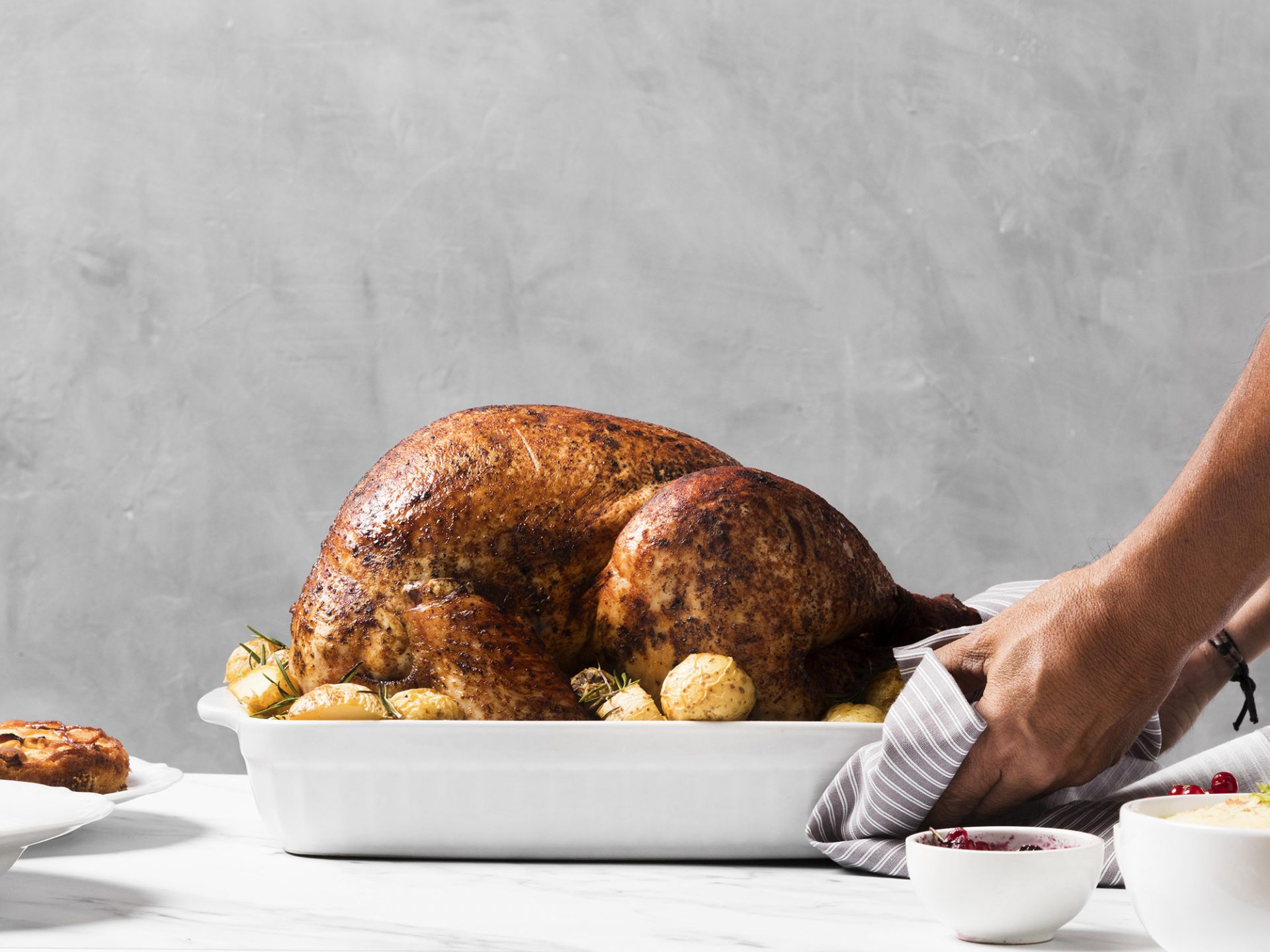I look forward to the fall season every year. So many of my favorite things take place this time of year—changing leaves, cooler temperatures, flannel, college football, and, of course, Thanksgiving. Each Thanksgiving, around thirty family members gather at my parents’ house in East Tennessee for a night of feasting, catching up, and reminiscing.
Everyone has specific Thanksgiving dishes they look forward to, and my family takes joy in the tradition of serving the same dishes each year. The two foods I anticipate the most are cornbread dressing and pea casserole. Yes, I said pea casserole. It’s delicious! As a recovering vegetarian of ten years (I’m still trying to forget about that one year I tried tofurkey), the side dishes are my favorite. My other Thanksgiving favorites are macaroni, deviled eggs, brownies, and all things pumpkin.
In the midst of this savory goodness, however, each Thanksgiving dinner invites a battle between my mind and my stomach. Maybe you fight that same battle. In the presence of delicious foods in large quantities that are only available once a year, it’s hard not to overdo it.
Seeking Healthy Balance
How do we honor God and enjoy the provision of a Thanksgiving feast while not being gluttonous in our eating?
Scripture speaks of the joys of feasting and yet also condemns gluttony. Understanding the difference is helpful at Thanksgiving. Feasting involves sober-minded enjoyment and appreciation for plentiful food on a specific occasion. Gluttony entails mindless consumption of food driven by an insatiable desire for more. As believers, we need to recognize the distinction and approach the holiday with a renewed mindset that is grateful for the blessing of food, family, and friends.
I hope the following practical tips will help you strive to honor the Lord in your Thanksgiving feasting.
1. Watch your beverages.
The sugar in drinks like sweet tea, soda, alcohol, milk, or juice can quickly rack up. These contain extra, empty calories that you could save for enjoying your favorite foods.
2. If you eat multiple Thanksgiving meals at various houses throughout the day, be choosey.
If one relative makes better creamed corn than another, pass on those mediocre dishes while indulging in them at another relative’s house.
3. Fill your plate with healthier foods first.
Start with veggies, whole grains, and lean meats before adding the heavier items to your plate.
4. Eat the good stuff.
Pass up the store-bought dishes, which probably aren’t as good anyway, and pick foods that are homemade. Even if they’re made with butter and sugar, consuming real foods versus processed foods filled with shady ingredients is always a better choice.
5. It’s perfectly fine to not finish your great aunt’s sweet potato casserole.
If it wasn’t as good as you were expecting, stop eating it. Just don’t let her see! We consume a lot of excess calories simply by continuing to eat foods that we might not actually enjoy.
6. Try using a smaller plate.
Putting your food on a smaller plate will limit your choices and portion sizes and will cause you to be more thoughtful with the foods you pick.
7. Determine ahead of time how much you plan to eat.
Plan for only going back for seconds once, picking one dessert, or keeping your portion sizes in check. Tell someone else your plans and ask them to hold you accountable.
8. Watch your grazing before the meal.
If your host sets out appetizers prior to the main course, savor them in moderation, as you’re likely to eat the same amount of those Thanksgiving dinner staples, regardless of what you ate before.
9. Eat fewer foods that contain saturated fats.
This includes cheese, ham, anything fried, and foods with lots of cream and butter. Because they’re heavy and calorie-laden, consuming these foods will quickly make you full, increasing the chances of overeating.
10. Slow down.
The turkey is not going to trot off your plate. There’s no need to scarf the food down faster than your mind can process what you’ve eaten. Slowing down will help you pay attention to and enjoy what you eat, enabling you to recognize when you’ve had enough. Remember, you don’t have to make a happy plate anymore. Like me, maybe you grew up being encouraged to clean your plate. But now, if you’ve had enough, there’s no need to keep eating.
Scripture exhorts a mindset of gratitude for God’s provision, not just on Thanksgiving. But on this holiday, we should thoughtfully consider the provision of these large amounts of food. If we recognize hunger and starvation are a normal occurrence for many in the world, we might be less likely to mindlessly consume Thanksgiving dinner. This should also prompt us to look for ways to serve and bless those in our community who do not have access to this same abundance.
Motivated to honor God even in our eating and drinking (1 Corinthians 10:31), believers can approach the bounty of Thanksgiving with renewed thoughts, feelings, and behaviors. So enjoy the turkey, sides, and pumpkin everything, and feast to the Lord!
Photo by Freepik
Be Well: Learning to Steward Your Health
Lainey Greer helps us see that the body matters to God and Christians are called to be faithful stewards of our physical health. Our faith should inform both our spiritual and physical practices, as we are immaterial (spirit) and material (physical) beings. Taking care of our bodies by adopting healthy habits is one way we reflect their value.






